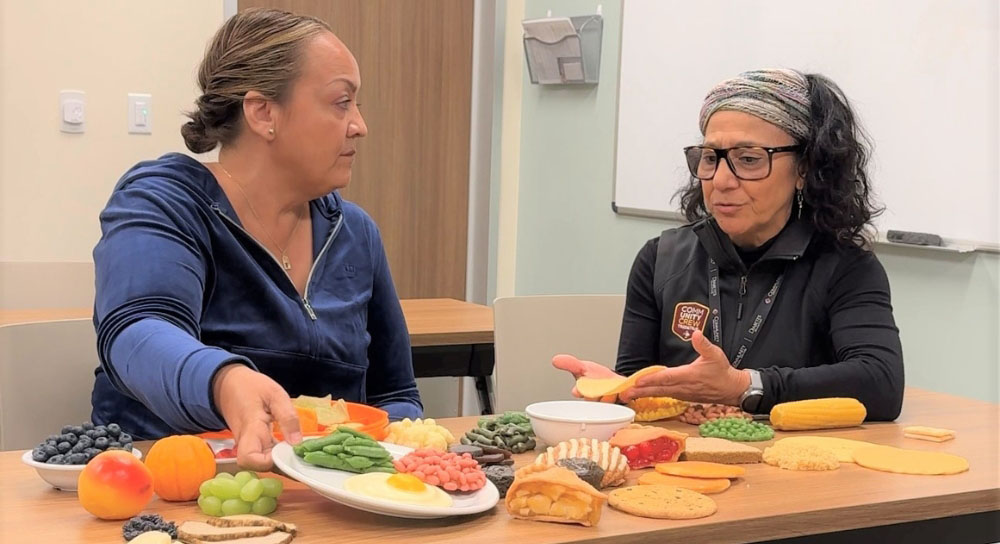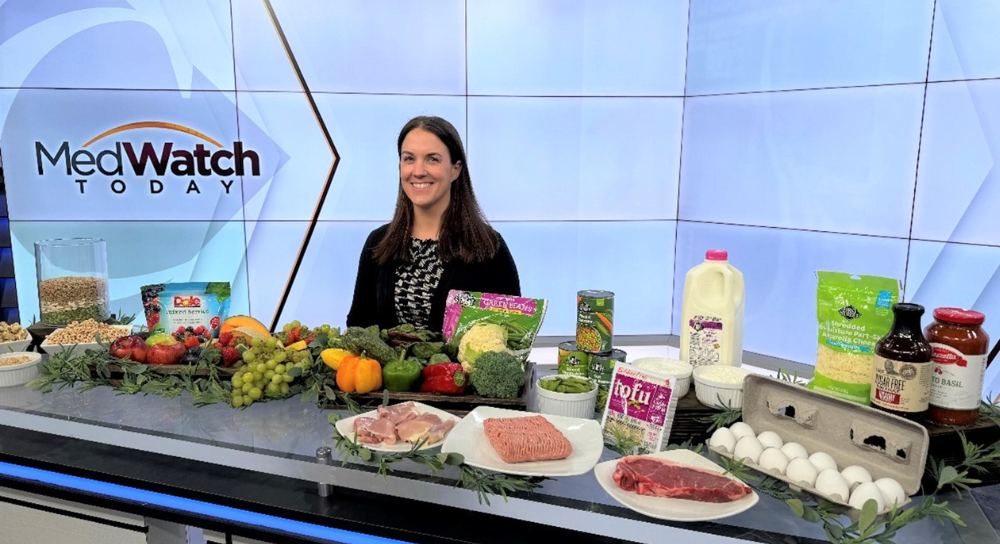Breast Cancer Awareness Month in October reminds us of the importance of monthly breast self-exams and annual mammograms starting at about age 40 (depending on your medical history).
Maria Hernandez, a Madera resident, was doing her breast self-exam at home in 2019 when she felt a lump in her left breast.
She saw her doctor about the lump, and he referred her to a surgeon for a biopsy. “The surgeon told me that the biopsy came out negative — that I didn’t have to worry about it,” said Hernandez, “He told me, ‘If you want to, I can remove it so it doesn’t become cancer.’ I told the surgeon, ‘No, I don’t think so.’ There is no family history of cancer.”
“So he asked me, 'How do you feel?' and I said I feel very tired and I don’t have much energy,” she said.
The lump continued to grow and, a year later, needed to be removed
In 2020, Hernandez returned to her doctor who told her the tumor had grown and she would need to have surgery called a lumpectomy to remove it.
 A lumpectomy revealed Hernandez had stage 3 breast cancer, which means cancer had spread to surrounding tissue and lymph nodes. Based on the level of care she would need, her doctor referred her to Community Cancer Institute, located on the Clovis Community Medical Center campus. Hernandez connected with the Marjorie E. Radin Breast Care Center at Clovis Community and was relieved to find healthcare professionals there who spoke Spanish and could help her understand and navigate the steps she would need to take.
A lumpectomy revealed Hernandez had stage 3 breast cancer, which means cancer had spread to surrounding tissue and lymph nodes. Based on the level of care she would need, her doctor referred her to Community Cancer Institute, located on the Clovis Community Medical Center campus. Hernandez connected with the Marjorie E. Radin Breast Care Center at Clovis Community and was relieved to find healthcare professionals there who spoke Spanish and could help her understand and navigate the steps she would need to take.
“We like to prepare our patients and make sure they are fully prepared to start their journey with their treatments,” said Patricia Martinez, manager of Oncology Support Services at the Community Cancer Institute.
“The navigation team is really an essential extra layer of support for the patient because when someone is diagnosed with cancer, it’s a really scary experience. So, to have someone be able to guide them and essentially hold their hand through their journey is really important to know they are not by themselves,” said Martinez.
Community offers many cancer services under one roof
The Community Cancer Institute treats a wide range of cancers and is one of the few programs in California with teaching hospital-level accreditation from the American College of Surgeons (ACOS) Commission on Cancer. It has specialized programs for lung, breast and neurological (brain and spine) cancers.
Breast cancer patients at the Marjorie E. Radin Breast Care Center work with a team of breast surgeons, medical and radiation oncologists, plastic surgeons and geneticists. The medical care team is backed by Oncology Support Services — a team that includes social workers, nurse navigators, care coordinators, speech-language pathologists, dieticians, rehabilitation specialists and others.
“We are an amazing team of people who are so dedicated and so compassionate to our patients,” said Martinez. “We really are the heart of the service that patients get, and we shed a beacon of light for our patients so that includes our registered dieticians, our speech-language pathologist, our medical assistants.”
Patient-focused services & support
For patients like Maria Hernandez, navigating stage 3 cancer, it’s crucial to have access to state-of-the-art care and resources and work with people who communicate well with them.
“It doesn’t just start when they get the results of their biopsy. It starts when they go in for a mammogram and they are told there is an area of concern,” said Beverly McCann, nurse coordinator at Clovis Community’s Marjorie E. Radin Breast Care Center
“There are times when patients at the breast center are biopsied there and we sit with them while they get those results.”
“And then we sit with them afterward to be kind of a sounding board for them but then to also say here’s how we can help you with that next step,” said McCann.
Helping to relieve a cancer patient’s anxiety
Learning you have cancer, seeking help and undergoing treatment can become an overwhelming and stressful time for patients and their families. Programs like those at Community Cancer Institute help them stay positive and focused.
“I was never depressed. I just knew this was the right path that would take me to feeling better,” Hernandez said.
Having finished her last chemotherapy in February 2022, Hernandez says her care team is what helped push her through to the end. She thinks that more members of the Hispanic community need to know about the types of treatment available — and that patients can find support in the language they’re most comfortable speaking: “As a member of our Hispanic community, we need a lot of help finding out where these resources are and all of this information.”
Hernandez is feeling like her old self again. “Thank God I’m working now and my hair grew back,” she said. "At first, I couldn’t even recognize myself."
“I am thankful for the whole team and everything they did for me,” she added.
See this story on MedWatch Today






